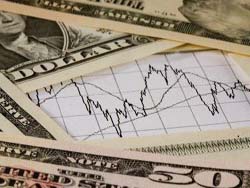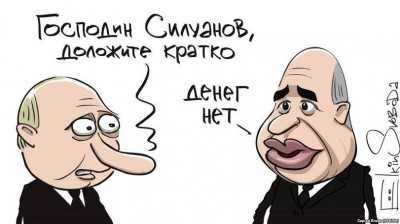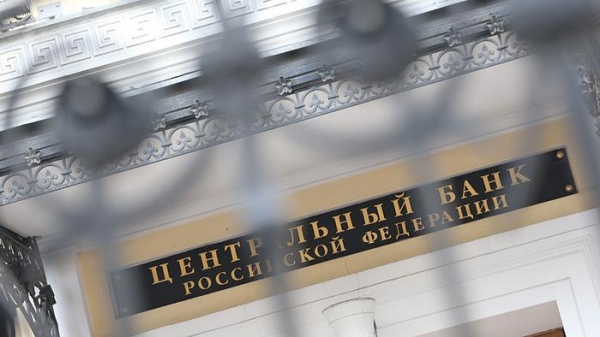
Russian banks went on a crusade against dollar investors
The savings Bank has lowered rates on foreign currency deposits to almost zero. Example the largest financial organizations in the country are prepared to follow many banks. “Ribbon.<url>” I talked with their representatives, as well as with financial analysts and find out what soon need to prepare for the Russians.
The non-profit dollars
April 25, Sberbank almost zeroed rates on foreign currency deposits. The minimum rate of return of the Deposit “Save” in dollars fell to 0.05 per cent per annum, in Euro — up to 0.01 per cent, on deposits “Updates” and “Manage” — to 0.01 per cent in dollars and euros.
About the upcoming reduction of rates earlier, on 18 April, said the Deputy Chairman of Sberbank Alexander Morozov. It is noteworthy the following is his statement: “To rates below zero we are mentally not ready yet”. So, sooner or later (probably later) the Russians will have to pay financial institutions for what they will accept foreign currency for storage.
In General, the market reduces the attractiveness of ruble deposits. According to the latest data of the Central Bank, the average interest rate on deposits in the 10 largest banks is 9.75 percent. And in December 2014 after raising the key rate of the Central Bank up to 17 per cent, this figure was recorded at 15.31 percent. Thus, annual inflation at the moment is 7.3 per cent. That is, ruble deposits barely save the savings of Russians from depreciation.
Together down
Bankers interviewed “Tape.<url>” noted that now the market has formed a steady trend towards reduction of interest rates on deposits. And as on ruble and foreign currency. This is due to the influence of a range of factors that financial institutions consider when making decisions about changing the yield of deposits.
Vice President, Director of passive, insurance and investment products of the Bank “Opening” Vadim Pogosyan does not exclude that at his Bank the interest will change. “We are closely monitoring the actions of major players and have long observed a tendency to decrease in rates on deposits in the market,” he said in an interview with “Tape.<url>” and stressed that while “Discovery” did not take concrete decisions.

Many banks are going to lower rates in foreign currency deposits
Photo: Maxim Bogodvid / RIA Novosti
“The main trends of the market, including the behavior of competitors, suggests that the level of interest rates on deposits for private clients moving to the downside,” confirmed “Tape.<url>” Vice President, head of financial management to clients of VTB 24 Ashot Simonyan. And announced that VTB 24 has not yet made a decision about the change of yield of deposits.
“Rates on our foreign currency deposits were reduced in late 2015 and early 2016”, — said the head of Deposit and payment products “home Credit” Nadezhda Kulikova. According to her, in the near future some adjustments to make are not planned.
Raiffeisenbank, according to his representative, considering the possibility of lowering interest rates on currency and ruble deposits. In the “URALSIB” also do not exclude it. But in the Moscow credit Bank to reduce the interest is not collected.
“Until the end of April we will reduce rates at the current line of deposits”, — said “the Tape.<url>” Vice President of SMP Bank Roman Tsivinyuk. It is connected with sufficient liquidity of the Bank, behavior of competitors and the expected reduction of the key rate of the Central Bank, he explained. The Director of Department of development of retail business of RosEvroBank Anton Suvorkin also said that the interest on ruble and foreign currency deposits will be reduced, if on 29 April, the Bank of Russia reduces the key rate.

The main problem becomes the excess of banks liquidity — banks have nowhere to place the borrowed funds
Photo: Nikolay Gyngazov / Russian Look / Globallookpress.com
“On foreign currency deposits for most banks rates have reached a minimum which is primarily due to the lack of need for foreign exchange liquidity. We have adjusted the rates on foreign currency deposits in mid-March”, — said the head of Department of passive operations of the Ural Bank for reconstruction and development Olga Aksenova.
The influx of green
One way or another, but the Russians will have to accept the fact that the deposits in foreign currency becomes unprofitable. However, these deposits previously were, to put it mildly, unfavorable. Even if you put 5 thousand dollars for a year at 3 percent (and many banks have recently offered just such a bet), you earn only $ 150. It is clear that the person placing the Deposit in foreign currency, especially not counting on a large percentage yield. Rather, it is guided by the desire to preserve savings from devaluation and, possibly, to win a large sum from the jump course. When viewed from this perspective, it turns out that the Bank sends an unambiguous signal: keep the dollars and euros in the us or under the mattress — now one and the same. The conditions caught up, and get at least some money from one fact placing funds on Deposit harder. Customers have to rely only on the weakening of the ruble.
It is possible to assume that banks offering unprofitable rates, erect barriers in case of a possible influx of dollar depositors. Financial institutions together with the population do not believe in the strengthening of the Russian currency, and once the dollars are going to rise in price, now’s the time to stock up, quickly making deposits. As a result, banks can stay out in the cold: the Russians EN masse will trust their currency, and a year will have to pay significantly potjazhelevshie as a result of the devaluation of deposits.

April 29 will be a meeting of the Board of Directors of the Bank of Russia. If the regulator will lower the benchmark interest rate, banks will also lower interest on deposits
Photo: Anatoly Zhdanov / Kommersant
But, most likely, the situation is much simpler. The fact is that now in the Russian banking sector formed the excess liquidity, particularly foreign exchange. Money can’t lie in dormant Bank and financial structures have somewhere to place it. For example, to issue loans at a rate higher than the Deposit, so the Bank itself is working, and ensure the interests of depositors. With difficulties when placing FX liquidity and associated current drop rates on deposits, analysts say.
Money nowhere to go
In 2016, the Russian banking sector was broken. If you have previously financial institutions had problems involving money (this is called structural liquidity deficit), it is now having difficulties with their placement (a structural surplus of liquidity). In February the Minister of economic development Alexei Ulyukayev said that the banks suffer from an excess of foreign currency liabilities, which have nowhere to go because the demand for foreign currency loans falls. One of the ways to solve the problem is to issue currency with the bonds that they bought up financial institutions. But has not yet been decided who exactly will act as the Issuer of these securities. Another method of recovery — the termination of building of foreign currency liabilities than banks and intend to do, reducing the attractiveness of deposits in dollars and euros.
The current decline in rates is caused by two factors, explained “the Tape.<url>” chief economist at BCS financial group Vladimir Tikhomirov. First, the excess foreign exchange liquidity in the system. Secondly, the slowdown in inflation and declining inflation expectations. “I do not think that Sberbank is afraid of an influx of foreign currency depositors. To do this, there’s no reason: incomes continue to fall, savings are melting, and the reason for the new rapid depreciation of the ruble that could trigger a wave of demand for currency, no,” he says. Simply put, now Sberbank does not need new foreign exchange liabilities, and he shows that through the change of rates. The expert also suggests that on April 29 the Bank of Russia will lower the benchmark interest rate, and this will be another opportunity to further reduce the yield on deposits.
“Why did liquidity suddenly found themselves redundant? It’s very simple. Lending because of the crisis is not developing as quickly. The population saves. The Bank attracts money, but nowhere to place them,” — says the Deputy Director of analytical Department of investment company “Okay Broker” Sergey Alin. If you display the brackets loans as a way of placing the money of the depositors, the comparable yield for options the Bank does not have, he concludes.








